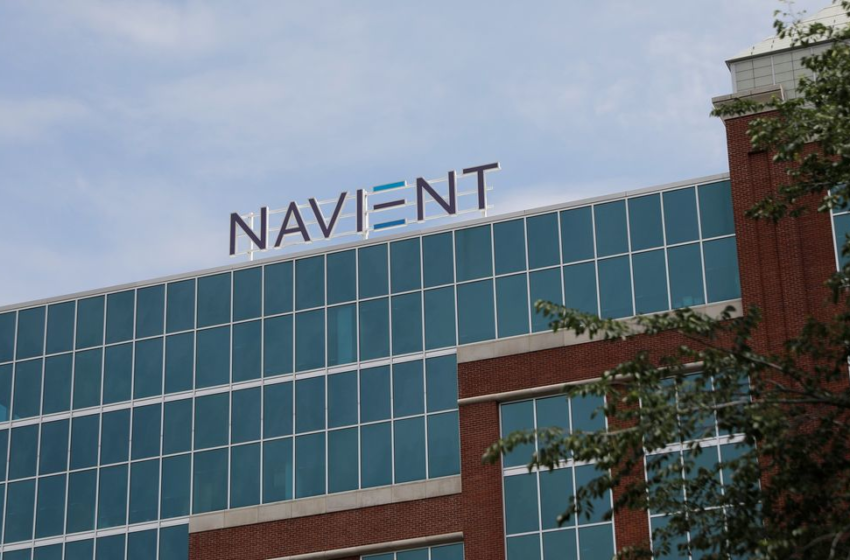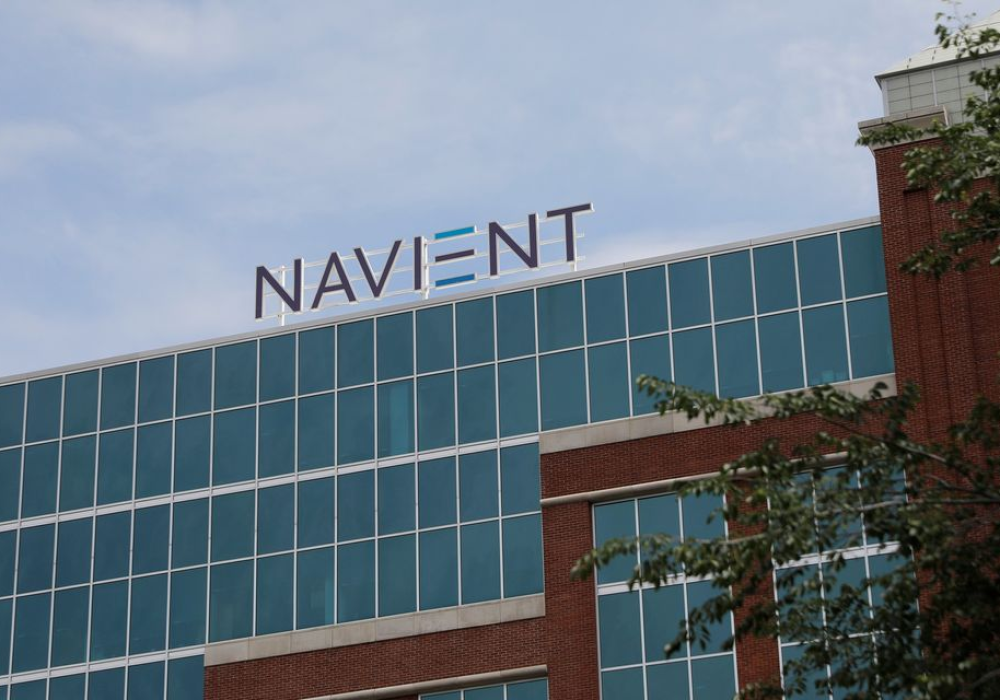A former unit of student loan giant Sallie Mae said it would cancel $1.7 billion in private student debt for about 66,000 borrowers to resolve claims that it engaged in deceptive lending practices.
Navient Corp.
, a student loan servicer that split off from Sallie Mae in 2014, agreed to the sum in a settlement with 40 state attorneys general. The loans are private loans, so the losses will be covered by Navient’s investors rather than the federal government.
Nearly all the canceled loans originated at Sallie Mae from 2002 to 2010, at a time when student debt soared, on its way to becoming the second-highest form of household credit after mortgages. Sallie Mae was at the forefront of that boom, both as the biggest originator of private loans as well as the biggest lender under a federal program that guaranteed student loans.
The loans primarily went to borrowers with poor credit, and who attended schools with shaky records, including many for-profit schools, according to a website run by the settlement administrator. All of the loans forgiven in the agreement were in default.
“For too long, Navient contributed to the national student debt crisis by deceptively trapping thousands of students into more debt,” said New York Attorney General
Letitia James.
As part of the agreement, Navient continued to deny the claims or that the company has harmed any borrowers. “The company’s decision to resolve these matters, which were based on unfounded claims, allows us to avoid the additional burden, expense, time and distraction to prevail in court,” said
Mark Heleen,
Navient’s chief legal officer.
Navient has faced numerous lawsuits in recent years that alleged the company engaged in unfair and deceptive conduct against borrowers, including steering those with federal loans toward plans that would allow them to stop making payments but in which interest continued to accrue, rather than toward plans in which monthly payments are tied to borrowers’ income.
Last March, a Seattle-area judge ruled that the company had broken a consumer protection law in a case brought by Washington’s attorney general.
“Navient repeatedly and deliberately put profits ahead of its borrowers—it engaged in deceptive and abusive practices, targeted students who it knew would struggle to pay loans back and placed an unfair burden on people trying to improve their lives through education,” Pennsylvania Attorney General
Josh Shapiro
said.
The agreements resolve all six outstanding state lawsuits against Navient, the company said. As part of the settlement, the company will make a one-time payment of approximately $145 million to the states.
In addition to loan cancellation and some restitution for borrowers with private loans, Navient will pay $95 million to about 350,000 federal loan borrowers—or about $260 each—who were placed into certain types of forbearance programs that caused them to accumulate more debt rather than entering income-based repayment plans, the states said.
States will distribute restitution to borrowers within their jurisdictions. Massachusetts, for example, will receive more than $6 million, including $2.2 million in restitution for more than 8,300 federal loan borrowers, state Attorney General
Maura Healey
said.
Federal loan borrowers eligible for restitution will be notified by mail this spring, with checks going out in the middle of the year, according to the settlement administrator’s website. Private borrowers who qualify for discharge will be notified by July.
Private loans without federal backing make up less than 10% of the total $1.7 trillion student-loan industry. About 43 million people owe $1.6 trillion in federal student debt, Education Department data show. About 5.2 million of those federal borrowers are in default. Those borrowers, unless they also held private student loans, aren’t affected by Thursday’s settlement.
Navient recently announced its exit from federal student-loan processing. It had been one of the primary federal contractors, serving around six million borrowers. Its accounts were transferred to a new contractor,
whose role was approved by the Education Department.
The Education Department also has taken steps to forgive billions in debt held by disabled borrowers, as well as borrowers who went to institutions that federal regulators say practiced deceptive recruiting practices, such as ITT Technical Institute. The piecemeal moves have resulted in $11.5 billion in canceled debt for around 600,000 borrowers over President
Biden’s
first year in office. Student loan payments have been suspended by the government during the pandemic, with the latest extension now set to expire on May 1.
The Biden administration is in the midst of restructuring its student-loan processing system. In November it announced it was ending its relationship with private collection agencies that had been tasked with recovering payments from federal student-loan borrowers in default to improve collections and provide borrowers with more support.
The Consumer Financial Protection Bureau has been suing Navient since 2017 over allegations that it steered borrowers into postponing payments instead of entering lower-cost, income-driven repayment plans. The CFPB has said the practice cost borrowers $4 billion in interest expense. Navient has disputed the government’s claims.
—Melissa Korn contributed to this article.
Write to Gabriel T. Rubin at gabriel.rubin@wsj.com
Copyright ©2022 Dow Jones & Company, Inc. All Rights Reserved. 87990cbe856818d5eddac44c7b1cdeb8










